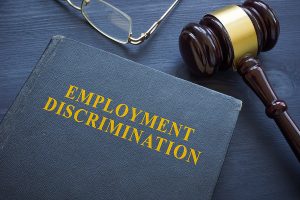A recent decision from New Jersey’s Appellate Division recognizes it can be retaliation in violation of the Conscientious Employee Protection Act (“CEPA”) for a police department to harass one of its members because he objected to a new policy he reasonably believed is an illegal arrest quota system.
 Calvin Anderson has been a member of the East Orange Police Department for over 20 years. His supervisor, Anthony Cook, instituted a “productivity improvement system” that Anderson believed violated a New Jersey law that prohibits police departments from instituting arrest quota systems. Anderson, who was a lieutenant at the time, complained about the productivity improvement system and refused to implement it.
Calvin Anderson has been a member of the East Orange Police Department for over 20 years. His supervisor, Anthony Cook, instituted a “productivity improvement system” that Anderson believed violated a New Jersey law that prohibits police departments from instituting arrest quota systems. Anderson, who was a lieutenant at the time, complained about the productivity improvement system and refused to implement it.
Anderson filed a lawsuit against the Department and Cook, alleging they retaliated against him in violation of CEPA. He claims Cook retaliated against him by investigating him for neglect-of-duty regarding his supposed failure to complete an accident-reconstruction report. Even though the investigating officer concluded Anderson did nothing wrong, Cook then filed a complaint to the Internal Affairs Department about the same incident. In addition, Cook required Anderson to increase his productivity in terms of stops and arrests in a crime zone, and issued him a written warning notice for failing to do so. Cook also threatened to bring neglect-of-duty charges against Anderson for failing to file an incident report about another officer, even though doing so was the responsibility of a sergeant. In addition, Cook ordered another captain to investigate Anderson, and threatened to issue a written warning to Anderson, for failing to report to a lineup for a July Fourth celebration. Likewise, Cook berated Anderson in front of the mayor for supposedly neglecting his duty and wasting taxpayer dollars, and frequently assigned him to the midnight shift, which prevented him from working traffic details, which Anderson claims caused him to lose $10,000 to $12,000 in compensation.
 On June 3, 2024 the DCR initially proposed the new regulation to addresses disparate impact claims under the New Jersey Law Against Discrimination (“LAD”). A disparate impact claims is when a practice or policy that appears to be neutral on its face has a disproportionate negative impact on people in a particular legally-protected class, such as based on their age, race, national origin, gender, disability or sexual orientation.
On June 3, 2024 the DCR initially proposed the new regulation to addresses disparate impact claims under the New Jersey Law Against Discrimination (“LAD”). A disparate impact claims is when a practice or policy that appears to be neutral on its face has a disproportionate negative impact on people in a particular legally-protected class, such as based on their age, race, national origin, gender, disability or sexual orientation. New Jersey Employment Lawyer Blog
New Jersey Employment Lawyer Blog







